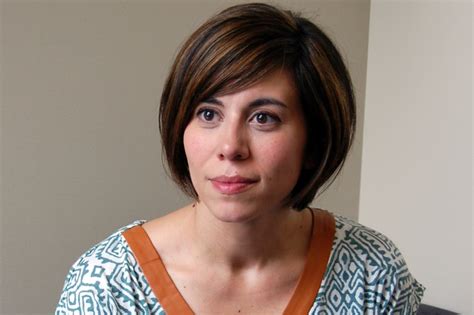A Quote by Ben H. Winters
We spend so much time, these days, on forms of literature that don't rise to be literature, and I'm speaking about Twitter posts and quick and hot takes on different websites. We sort of zoom from thing to thing like a hummingbird.
Related Quotes
I find that, for me, it is this concept of borrowed or built life, life on loan, that gets me writing. It's similar to speaking about literature. I like it, and then I don't like it. It has such an inherent vein of pretention, because you're not speaking about real things. There's a literary pretentiousness made of speaking and spending so much time on unreal persons. And it seems, now, impossible to create an unpretentious, totally organic character.
I probably spend more time writing than reading science fiction. I find that science-fiction literature is so reactive to all the literature that's gone before that it's sort of like a fractal. It's gone to a level of detail that the average person could not possibly follow unless you're a fan. It iterates upon many prior generations of iterations.
I think so much of young adult literature sort of gets ghettoized - the title 'young adult' makes people immediately discount it. And just like with books that get written for adults, there is plenty of young adult literature that is bad. But there is also plenty of young adult literature that is brilliant.
I don’t get wrapped up in technique and the like. I have a simple rule and that is to spend as much time in the location as possible. You can’t expect to take a definitive image in half an hour. It takes days, often years. And in fact I don’t believe there is such a thing as a definitive picture of something. The land is a living, breathing thing and light changes its character every second of every day. That’s why I love it so much.
It seems to me that literature is giving way a little bit to the immediacy of other diversions, other forms of entertainment. What will it be in fifty years? I don't know. Will there be printed books? Probably, but I'm not sure. There's always going to be literature, though. I believe that. I think literature has a way of getting deep into people and being essential. Literature has its own powers.
I shot the way I wanted to shoot [in The Hateful Eight]. The only real disadvantage I felt at the time, but I don't feel now, was that we weren't able to get a zoom lens, and I had really gotten used to using a zoom lens for that little zoom creep. But it was also a nice thing to be forced to not use all the tools that you've gotten used to, from time to time, and to be able to work in a different way.
For the judging of contemporary literature the only test is one's personal taste. If you much like a new book, you must call it literature even though you find no other soul to agree with you, and if you dislike a book you must declare that it is not literature though a million voices should shout you that you are wrong. The ultimate decision will be made by Time.


































